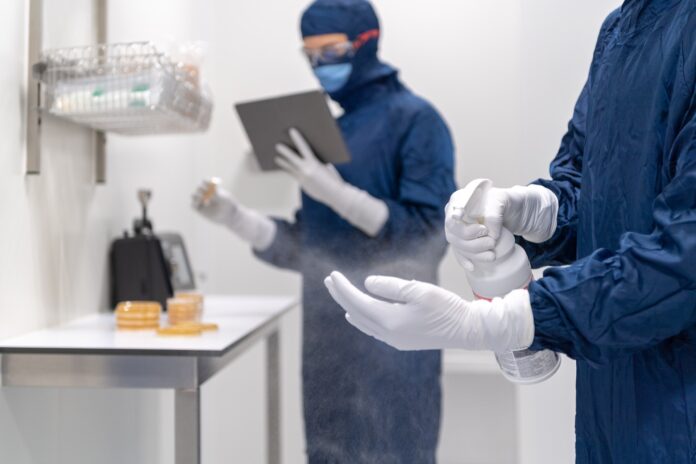A lab bench is a specialized workbench used in scientific research and experimentation. It is designed with specific components and materials to provide a safe and sanitized workspace, preventing contamination or other hazards that could compromise research results or researchers’ health. A typical lab bench comprises a work surface, frame, legs, and accessories like storage drawers, shelving, and lighting fixtures.
Tips for Choosing a Lab Bench
The right lab bench is imperative for maintaining a safe, efficient, and productive laboratory environment. It can help your workspace remain organized and may contribute to the overall success of your research and experiments. Different laboratory environments have unique requirements, and it’s necessary to identify these factors while choosing a laboratory bench:
Consider Your Lab’s Requirements
Before buying a laboratory bench, identify the experiments or research you could be conducting and the types of equipment that may be used. You can identify whether you need a bench with plumbing, electricity, or ventilation. Once you know your lab’s requirements, you can clearly understand the bench types that will meet your lab’s needs.
Choose the Right Materials
When choosing a laboratory bench, have in mind the type of experiments you could be working on. This could determine the type of material the bench is made of. The most common materials for laboratory benches are stainless steel, wood, laminates, and phenolic resin.
Phenolic resin is a sturdy, corrosion-resistant material ideal for laboratories that work with chemicals. Stainless steel is commonly used in laboratories with heat or a cleanroom environment. Wood and laminates offer a more affordable option for general purposes.
Assess Safety Features
When shopping for lab benches, confirm that the furniture provides proper safety features such as chemical resistance, flame resistance, and anti-microbial options. Confirm that the bench protects the workers using them and the equipment housed on them. These qualities can help safeguard the lab and the bench work.
Optimize Ergonomics
Your researchers might spend much of their day standing or sitting at their benches. Choose a bench with an adjustable height that allows them to work comfortably with minimal strain on their bodies.
This can help reduce the risk of repetitive stress injuries and fatigue. Look into the shape and size of the bench. A bench with a curved edge can help prevent neck and shoulder strain, while a larger bench could provide more workspace and storage.
Consider Storage and Organization
Choose a lab bench with enough storage and organization options to accommodate your research needs. Filing cabinets, shelves, and drawers can be imperative for keeping track of data, supplies, and equipment. Look at the placement of electrical features and gas outlets. A bench with built-in power strips and gas ports can help minimize clutter and promote easy access to necessary utilities.
Plan for Future Flexibility
Your lab’s research needs could change over time, and choosing a bench that can adapt to those changes is wise. You may need to add new equipment, change the layout, or accommodate new research projects. An easily reconfigurable bench can help you adapt to future challenges without replacing your entire lab setup.
Types of Lab Benches
There are multiple types of laboratory benches available, each one customized for specific laboratory research needs. Some common types of workbenches include:
Biological Safety Cabinets
These benches are designed for biological research and provide researchers with a sterile and safe workspace. They come with HEPA filters, airflow monitors, and ultraviolet lights that help prevent contamination.
Chemical Fume Hoods
These benches can protect researchers from chemical fumes or vapors, preventing respiratory or chemical hazards. They come with ducts that remove harmful chemicals, protecting researchers while they work.
Cleanroom Benches
These benches are used in laboratories where experiments involve sensitive materials that require a sterile environment. Cleanroom Benches provide a controlled environment where the level of contamination can be minimized, usually by filtering the air and controlling the temperature and humidity.
Purchase a Lab Bench From a Reputable Seller
By thoroughly examining these elements, you can choose a lab bench that meets your unique laboratory needs and supports the success of your research and experiments.
Choose a trustworthy bench vendor to have greater confidence in the quality, durability, and functionality of the lab bench you invest in. Reputable sellers offer reliable products, exceptional customer service, expert guidance, and valuable after-sales support.


The content Team Writer is one of the writers from our team of content writers. The Business Goals blog is expanding day by day and we need more writers and brand ambassadors for promoting our media website. If you are interested contact your portfolio through the Write for Us page.
















































